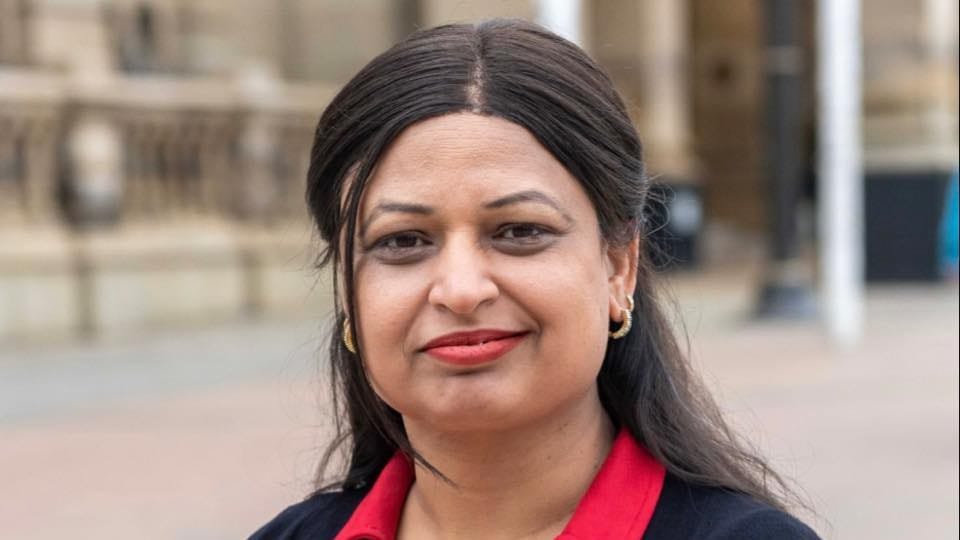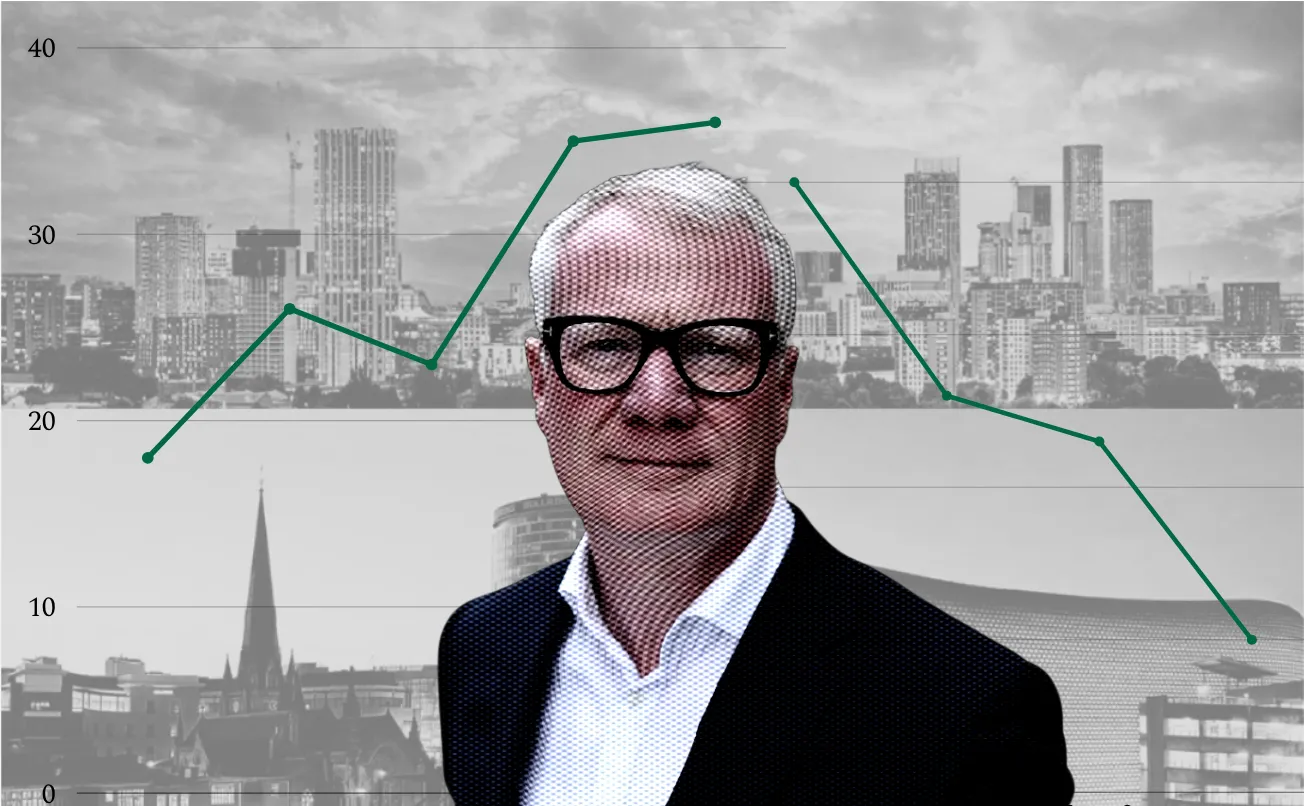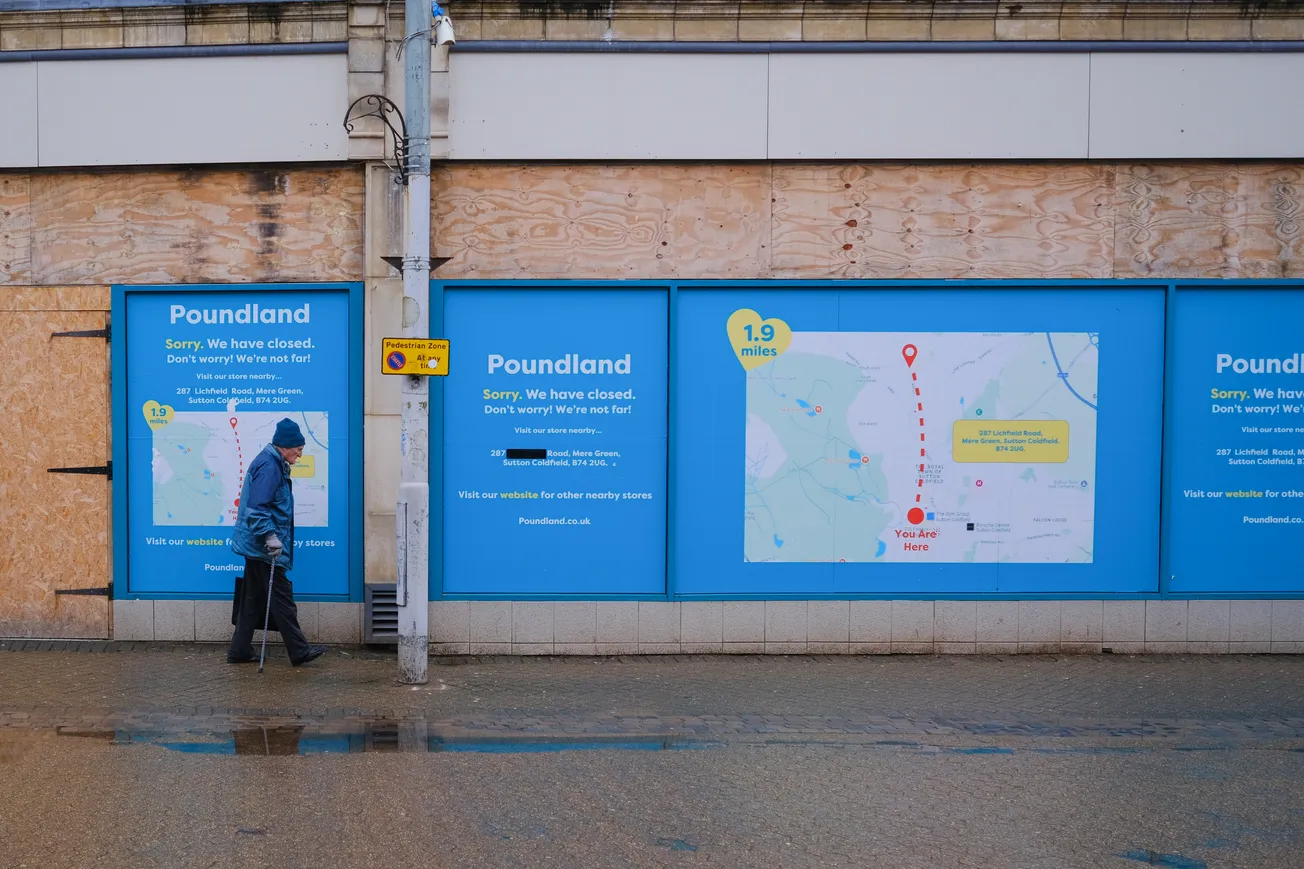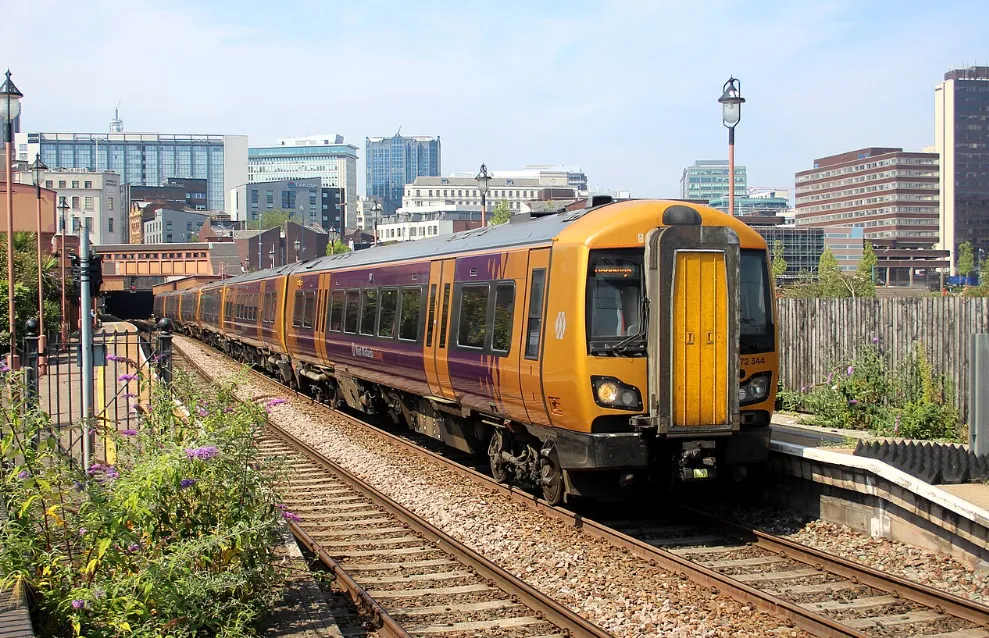Dear readers — a piece we put out two weeks ago caused quite a stir. Titled ‘Manchester’s economy is leaving Birmingham behind’, it set out just how serious the issues in our local economy are. Productivity — the holy grail in economics — has been slumping, while Manchester has been gaining ground. The gap between the two city regions is bigger than ever (members can still read the full piece here).
The article, unsurprisingly, received a lot of comments. But we’re also told it set off a ripple inside the combined authority, headed up by West Midlands mayor, Richard Parker. Such was the accuracy of our analysis, we were told senior figures have been worrying there’s a spy in the camp, leaking internal documents to us.
We can confirm that no espionage was involved. Instead, it was an example of that rare thing — a journalist being given the time they need to dig into a story. The massive datasets that underpinned the piece required someone with economic expertise and a few days to really drill into them. We know that’s what readers value, and being freed from the need to churn out clickbait lets us do it.
If you agree that this is how local journalism should work, then please join our group of supporters today. Clickbait or local support: those are the only two options. We’re determined to choose the latter, but we need your help — take up our introductory offer so you can try it out.
But back to the economic situation. Given its severity, there’s an urgent need for our local leaders to do something about it. None more so than Parker himself, given that it’s not an issue with any one area, but right across the West Midlands, from JLR’s struggles in Solihull to the noticeable lack of a business boom in Birmingham city centre and economic boost in the Black Country. Last week, with no prompting from us, Parker’s team got in touch to ask if he could write something in response to our article.
We don’t run many opinion pieces. But with the issues being so important, and Parker being a key person in solving them, we’re making an exception.
It should go without saying that what follows carries no endorsement from The Dispatch. We want to hear from you in the comments to tell us whether or not you think Parker has the right ideas to turn things around.
First, though, your Brum in Brief.
Brum in Brief

🪓 Labour has axed around a dozen councillors in the “biggest shake up at Birmingham City Council in 15 years,” according to one party insider. On Monday, applicants hoping to be selected to stand for Labour in the 2026 local elections found out if they had been successful or not, as reported by Jane Haynes on her Inside Birmingham Substack. Candidates are normally selected by a panel of local senior Labour activists but, this year, the party’s National Executive Committee (NEC) — the governing body of the party — took control. There are also normally several opportunities for candidates who are turned down to appeal the decision, but not this time around. As The Dispatch reported back in January, we understand that the NEC had long planned the move to ensure greater scrutiny of potential candidates and avoid another embarrassing exposé, as in the 2023 Council Improvement Board report that found Birmingham Labour had a “dysfunctional culture”.
🪂 That said, some of the decisions have caused confusion. Councillor Liz Clements – who is stepping down from her role next year, by choice – told Haynes she was "perplexed" by the decision to turn down former chief whip Fred Grindrod because "he has stood up for people in his neighbourhoods and sacrificed a lot of time and energy to the Labour cause." Former Labour-turned-independent councillor Martin Brooks has even suggested on X that the party is guilty of "nepotism, cronyism and corruption," and that "friends, family and employees of Labour MPs are being parachuted in" to the seats. On the other hand, one insider and successful applicant, a community activist who isn’t currently a councillor, told The Dispatch it was the “biggest shake up at Birmingham City Council in 15 years” and without the NEC's intervention, it was “impossible for new energy, for new people to get involved.” According to them, there are many hurdles in place for newcomers, mainly due to the way the party is structured at a local level where it is much easier for existing councillors to continue.
➡️ Half of the councillors axed by the NEC sit in wards in the Perry Barr constituency, including veterans like Gurdial Singh Atwal (Handsworth Wood) and relative newcomers like Rinkal Shergill (Holyhead). One councillor who was turned down told The Dispatch that they were dismayed by what they say is factionalism within Labour, adding that "the group is in pieces".
Quick Hits
🚨 A teacher has been sentenced to three and a half years in prison for posing as a teenage boy on Snapchat and sending naked pictures of himself to girls. Jamie Morgan of Park Close, Erdington admitted to three counts of sending indecent images and one of inciting a child to engage in sexual activity, in March, reports the BBC.
⚖️ Local lawyer and former mayoral candidate Ahkmed Yakoob has been given a date to face trial over money laundering. The 37-year-old solicitor has been accused alongside 38-year-old accountant Nabeel Afzal, and both have pleaded not-guilty. They will stand trial in two years time, reports the BBC.
💰 A Birmingham fraudster secured three Covid loans for his company — businesses were only supposed to claim one — worth a combined total of £45,500. Fitness company owner Junaid Dar spent some of the money at restaurants and West Midlands Safari Park.
Opinion: the West Midlands economy can be reignited
By Mayor of the West Midlands, Richard Parker
The latest productivity figures from the Office for National Statistics, and the detailed diagnosis in The Dispatch, made for difficult reading. But they’re not a surprise, they’re a trend. They show what many of us in this region have known for a number of years: we’ve been drifting when we should have been driving. The region that once powered a nation has been punching below its weight.
What’s painful is not just the data itself, it’s the sense of missed opportunity. In 2017, the West Midlands briefly overtook Greater Manchester on productivity. Since then, while our friends in the North have pushed forward, our region has gone into reverse. In those years, our productivity and growth have fallen significantly behind Greater Manchester. Whilst they have improved, we have declined. It’s hard not to feel the frustration.
But it doesn’t have to stay this way.
We must learn the lessons of the last eight years and we must be bold enough to write a different future.
Let’s start by recognising some facts. Both Greater Manchester and the West Midlands were given devolved status and elected Mayors in 2017 — but from different parties, with different priorities and different backgrounds. In that time, Greater Manchester has had greater devolved powers, an integrated transport strategy that’s paying off and a relentless focus on tackling inequality. Credit where it’s due, they’ve shown that regional growth isn’t a fantasy. It’s very achievable with the right plan and the political will.
But despite the gap that grew, the West Midlands is still smouldering with potential. You can see it in the cranes rising over Digbeth, in the innovation pouring out of our universities and in the energy of our diverse communities. Coventry, Wolverhampton and the Black Country are warm embers — proud places that built the industrial revolution and now stand ready to lead the green and digital revolutions.
The region has real economic heft and we’ve got the right ingredients. But to get real results, we need to bring them together. We need a clear plan that builds this region up into an international powerhouse, which is why next week I’ll be launching the West Midlands Growth Plan.
This isn’t a generic economic strategy that sits on a shelf. It was built with the region, is backed by the government and was designed for delivery.
We’re tackling the big barriers — poor local transport, a shortage of good housing, fragmented investment and unemployment. That’s why when I took office 12 months ago my first big priorities were getting our buses fixed, rapidly increasing house building inside the WMCA boundary and creating apprenticeships and skills programmes. And we’ve delivered on all of those already.
But growth is also about place and pride — and giving people a reason to believe that things can get better, not in a vague, distant way, but in the place where they live. So, we’re unlocking the potential of our towns, not just our cities. That’s what the Growth Plan will deliver. Not just a stronger economy, but a fairer one.
Because poverty and deprivation aren’t just moral concerns, they’re economic ones. When whole communities are locked out of opportunity — we all lose. But when we unlock talent, connect people to work and raise ambition — we all benefit.
It needs a new kind of politics — one that’s focused on delivery, not headlines. Focussed on all our communities and focussed on fairness.
The story of the last eight years is the story of two different sets of political priorities. We have changed our priorities in the West Midlands, with these priorities now embedded in our Growth Plan. This Plan will drive growth by bringing opportunity to people and places that have been denied it for far too long. These different priorities will bring different outcomes, putting much needed money into back pockets across the West Midlands.
The West Midlands is ready to lead again. Not by copying others but by doing what only we can.
So what will we do?
- We’ll connect communities with an integrated transport system that finally works as one across trams, trains and buses.
- We’ll give people the skills to access good jobs in growing industries, not just for now, but for the future — creating almost 100,000 new jobs.
- We’ll unlock investment across all of our towns, cities and communities.
- We’ll build the homes our region needs —more affordable, more sustainable, more social and better connected.
- And we’ll create the conditions for business and industry to thrive with local leadership and national backing.
It’s time to fan the flames and let the country see the region we know we can be.
Do you agree that the situation with the West Midlands economy can be turned around? Is this the right plan to do so, and do you believe it can be delivered? Let us know in the comments.








Comments